Life
Sign up for our newsletter
We summarize the week's scientific breakthroughs every Thursday.
-
 Animals
AnimalsA lot of life on planet Earth is awful and incredible
Acting Editor in Chief Elizabeth Quill discusses how the natural world feeds our sense of wonder.
-
 Animals
AnimalsReaders fascinated by critters’ strange biology
Readers responded to fish lips, monkey brains, sunless tanner and more.
-
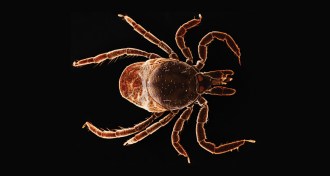 Animals
AnimalsTicks are here to stay. But scientists are finding ways to outsmart them
Researchers acknowledge that there’s no getting rid of ticks, so they are developing ways to make them less dangerous.
By Susan Milius -
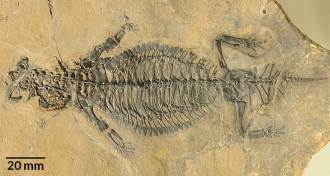 Animals
AnimalsFossil find suggests this ancient reptile lurked on land, not in the water
An exquisitely preserved fossil shows that an ancient armored reptile called Eusaurosphargis dalsassoi wasn’t aquatic, as scientists had suspected.
-
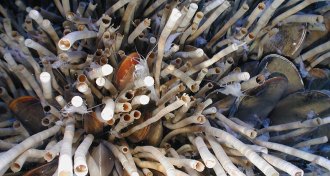 Animals
AnimalsThese record-breaking tube worms can survive for centuries
Deep-sea tube worms can live decades longer than their shallow-water counterparts.
-
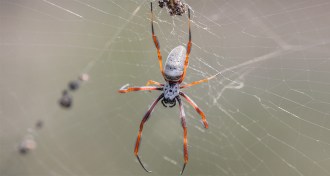 Animals
AnimalsHow spiders mastered spin control
Scientists reveal a new twist on the unusual properties of spider silk.
-
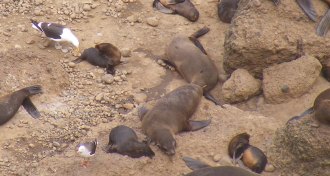 Animals
AnimalsOne creature’s meal is another’s pain in the butt
Kelp and dolphin gulls in Patagonia have found a new food source. But they accidentally injure fur seal pups to get it.
-
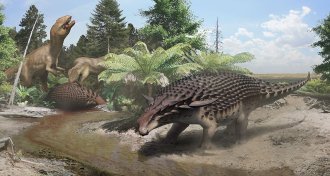 Paleontology
PaleontologyGiant armored dinosaur may have cloaked itself in camouflage
An armored dinosaur the size of a Honda Civic also wore countershading camouflage, a chemical analysis of its skin suggests.
-
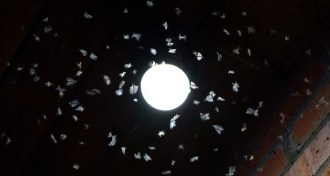 Life
LifeLight pollution can foil plant-insect hookups, and not just at night
Upsetting nocturnal pollinators has daylight after-effects for Swiss meadow flowers.
By Susan Milius -
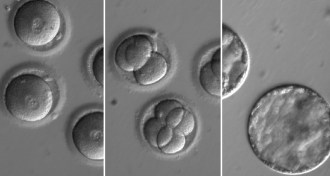 Genetics
GeneticsGene editing of human embryos gets rid of a mutation that causes heart failure
Gene editing of human embryos can efficiently repair a gene defect without making new mistakes.
-
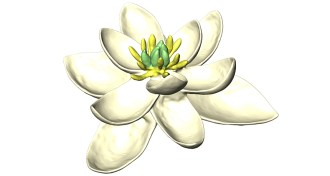 Plants
PlantsA new portrait of the world’s first flower is unveiled
A reconstruction of the first flowers suggests the ancient blooms were bisexual.
-
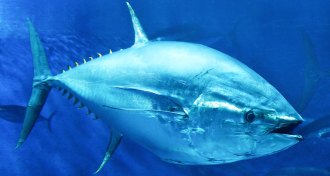 Animals
AnimalsNewly discovered lymph hydraulics give tunas their fancy moves
There’s still some anatomy to discover in fishes as familiar as bluefin and yellowfin tunas.
By Susan Milius